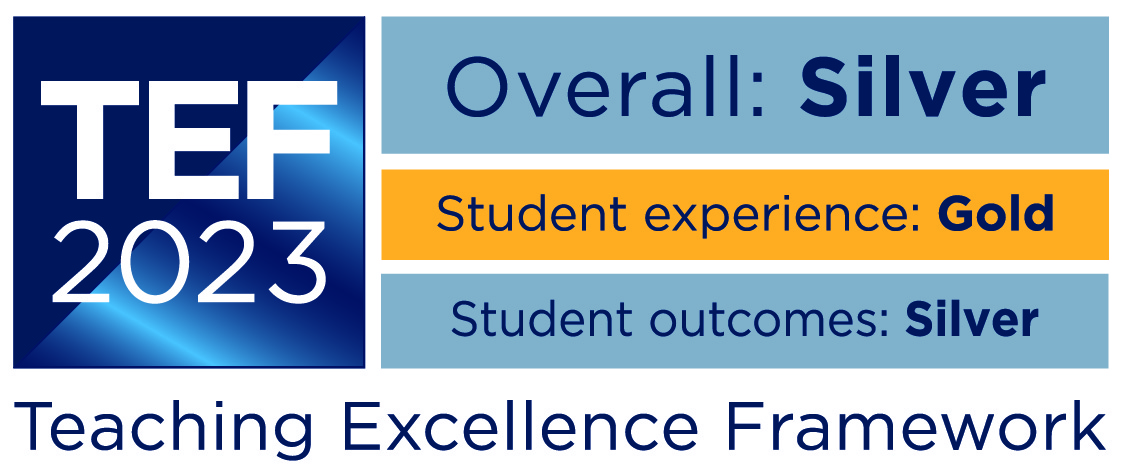This website uses cookies so that we can provide you with the best user experience possible. Cookie information is stored in your browser and performs functions such as recognising you when you return to our website and helping our team to understand which sections of the website you find most interesting and useful. For full details on the cookies used on our website, please visit our Cookies Policy page.
Futureworks is the UK’s foremost higher education provider for people seeking a career in the creative industries. We were thrilled to be invited by Greater Manchester Higher to host a Games Design Summer School at our Riverside Campus for year 10 students across Greater Manchester.
Greater Manchester Higher (GMH) is a collaborative network of higher education providers offering impartial information, advice and guidance to help young people make informed choices about their future. Their summer schools occur across various Manchester Universities to allow young people, underrepresented in higher education, to experience what studying at university is all about.
GMH is dedicated to breaking down the barriers and misconceptions associated with studying at university. They demonstrate to underrepresented young people, such as those from a background in care, caregivers themselves, or young people with additional needs, that university is an option and that studying in higher education is a choice for everyone, including them.
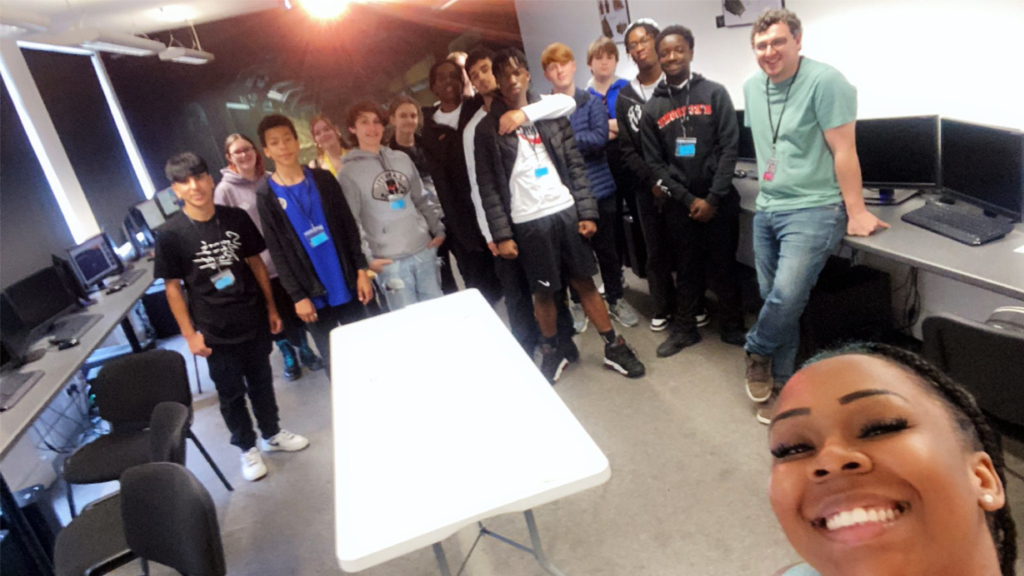
The summer school also allowed us to provide young people with a clearer understanding of the Games Industry. Over the three days, we introduced them to what it’s like to study for a creative career with Futureworks and work in the Games Industry. We explained the varied businesses and jobs available, the work they could be doing, and what they could expect to earn and experience once they graduate. With women and ethnic minorities being significantly underrepresented within the Games Industry, we were delighted to host a diverse group of twenty-one year ten students that included young people from schools identified by GMH as being in areas of Greater Manchester that have low rates of progression into higher education. The creative industries are often incorrectly identified as elitist regarding the social standing of the people it employs. Yet, more than ever, creative businesses are crying out for more diverse employees and people from all walks of life to create games, films, music, and media for a raft of increasingly diverse audiences.
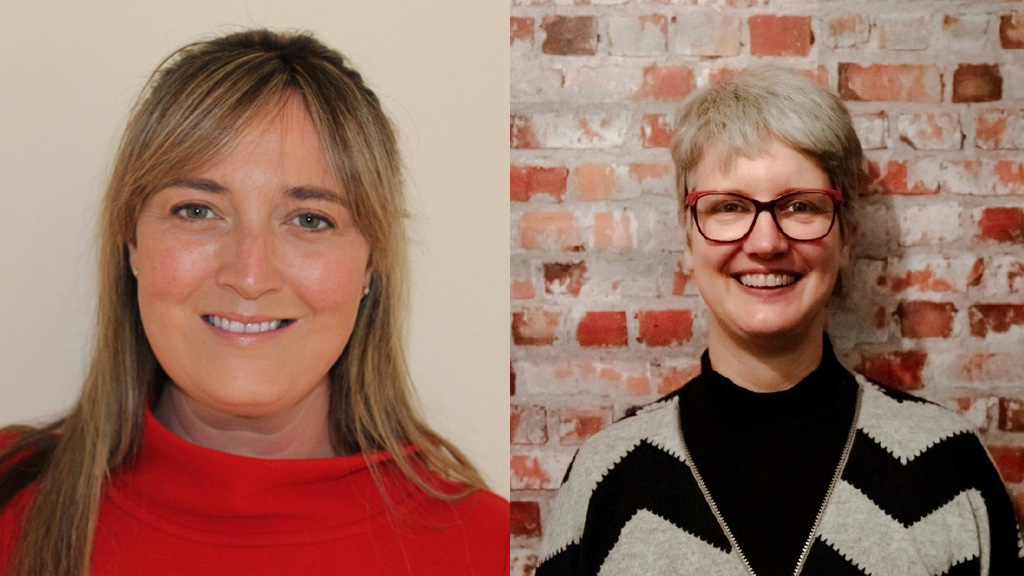
On the first day of the summer school, we took attendees around our Riverside Campus, briefed them on what they’ll be doing over the three days, introduced them to game design and broke them into working groups. Anna Whitehead, Programme Leader for BA (Hons) Games Design, introduced attendees to the game industry roles. She explained that it’s not all about computers and coding and that there are many jobs, from Artists to Level Designers, Game Audio Composers and Animators, and more.
The second day was a feast of activity, both figuratively and literally, with attendees introduced to the fundamental pillars of game design and given free rein to develop their game ideas. Lunchtime comprised enormous volumes of KFC, followed by a talk from Luke Perkin, Technical Designer at Nequinox Studios, about his progression into the games industry. The day wrapped up with a Q&A session with Student Ambassadors, where attendees were encouraged to ask questions about what it was like to study and live as a student at university.
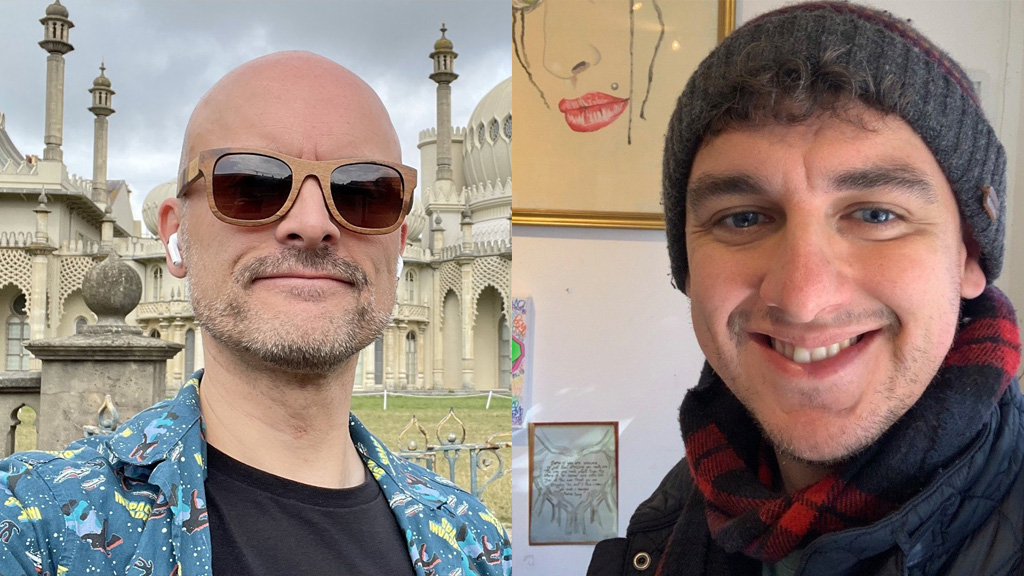
We followed up the Q&A session on the third day with a session on how universities work, covering information such as fees, how to apply, accommodation, etc. Attendees continued to develop their work, and in the afternoon, each group presented their ideas to a panel of industry experts, including the previously mentioned Luke Perkin, plus Producer Kirsten McDowell and Quality Assurance Specialist Angelo Argyrides from Cloud Imperium, and Simon Smith, CEO of Thumbfood and Founder and Chair of Gameopolis – Manchester’s Game Industry Network. Attendees were excited to receive certificates and prizes for their well-received efforts, and it was astounding to see how much they had evolved over the three days they had spent with us at Futureworks. The summer school introduced them to the university and the games industry and gave them the confidence and self-belief to present to such prestigious industry guests.
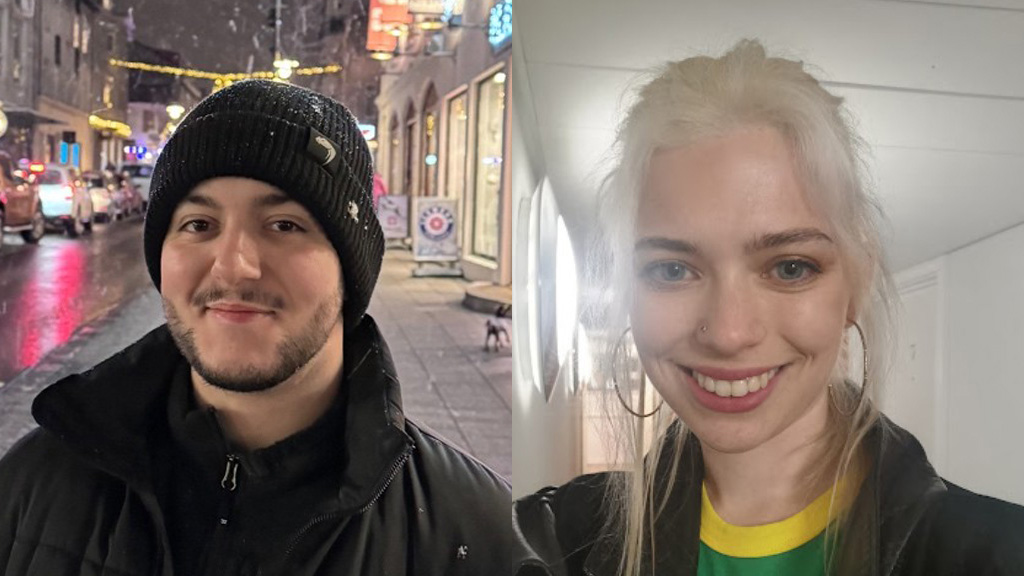
The complete course itinerary can be downloaded from the GMH website.
We want to think that Futureworks’ contribution toward GMH’s worthy initiative will help inspire the young attendees to consider higher education as an attainable choice for them, and we’d like to pass on our heartfelt thanks to GMH for providing us with the opportunity to help all twenty-one young people to shine. We hope our summer school helped break down misconceptions, provide clearer understanding, and energised attendees to consider a rewarding creative career in the UK’s rich, vibrant, and exciting Games Industry.
Finally, and most importantly, we would like to thank all summer school attendees. Your input, ideas, and enthusiasm are vital toward growing a rich and diverse future Games Industry in the UK and worldwide—there are no barriers. Work hard, and you will succeed.
If you’re interested in Futureworks hosting a summer school for pupils at your secondary school, or you’d like us to give them a tour of our campus or provide other activities please get in touch with Lindsey Smith at [email protected]
Book an Open Day and come along to experience Futureworks for yourself. Visit our website for further information about our three schools of Art and design, Sound and Music Production, Film, TV & Media, and our specialised creative courses, student work and industry-standard facilities.
At Futureworks, you can choose from specialised Sound, Film, Visual Effects, Game or Animation degrees and study for a creative education. You’ll learn from proactive industry professionals and get hands-on experience within purpose-built facilities housing the latest technology and equipment. Master your chosen degree within a collaborative community that genuinely cares about you and your future and graduate with the vocational skills, in-depth knowledge and technical expertise required for a successful career in the Creative Industries and a future that works for you.
